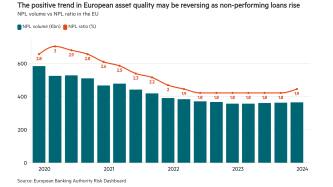At a glance
- FCA responds to demand for sustainable investments by tightening regulations on greenwashing and firms’ sustainability claims
- New rules include an anti-greenwashing measure, four sustainability labels, and strengthened disclosure requirements
- Despite its focus on protecting consumers, reducing greenwashing risks and promoting credible sustainable finance, concerns remain about the regime’s impact on the investment landscape
As demand grows for investments with a positive environmental or social impact, the UK’s Financial Conduct Authority (FCA) is strengthening regulation to hold firms to account on sustainability claims.
Consumer goods giant Unilever is the latest firm to come under scrutiny from the UK’s Competition and Markets Authority over how ‘green’ some of its products are.
Now, the FCA has announced a raft of new regulations under its Sustainability Disclosure Requirements (SDR), including an anti-greenwashing rule, product labels and renewed naming and marketing requirements.
These measures aim to increase investor confidence in sustainability-related claims and tackle what it calls a “lack of consistency” when firms use terms such as ‘green’, ‘ESG’ or ‘sustainable’.
But the FCA’s proposals have not been met with universal acclaim. Hadewych Kuiper, managing director of investment management at Triodos Investment Management, says they may “complicate” the investment landscape further and ‘greenhushing’ cases could rise.
Credibility and transparency
From May 31, 2024, all FCA-authorised firms that make sustainability-related claims about their products and services must comply with the new anti-greenwashing rule.
Given the “scourge” of greenwashing, a rule specifically prohibiting it is an important step forward, according to Anna Crosby, director of banking and asset finance at European law firm Fieldfisher.
“There have been credibility issues related to sustainable finance and green finance; this guidance is a recognition that credibility and transparency is fundamental for the future of those sorts of products,” Ms Crosby says.
Four labels — ‘Sustainability Focus’, ‘Sustainability Improvers’, ‘Sustainability Impact’ and ‘Sustainability Mixed Goals’ — look to enhance trust and help consumers navigate the investment product landscape. These labels are not designed to be in a hierarchy.
Alongside disclosures and naming and marketing rules, these labels apply to UK asset managers. As such, firms “must review everything that they’ve been saying to customers about products and services that they’re offering”, says Dougall Molson, partner at Fieldfisher.
All products using a label must have a sustainability objective to improve or pursue positive environmental or social outcomes as part of their investment goals, with disclosure of possible material negative outcomes required.
At least 70% of the product’s assets must be invested in accordance with its sustainability objective, with reference to an evidence-based standard providing an “absolute measure” of environmental or social sustainability, according to the FCA’s guidance. Firms must also identify key performance indicators to measure progress against sustainability targets.
Banks must remember that the new regime is relevant at two levels, says Claude Brown, partner at law firm Reed Smith. “Not only the individual financial instrument, be it bond, loan, or shares, but also at the ‘packaging’ level such as funds, [exchange traded funds], [collateralised loan obligations] and securitisations,” he says.
“For investment banks, the skill will be in curbing their — or the client’s — enthusiasm and not overstating the sustainable qualities of the financings and deals they are involved in,” Mr Brown says.
Rules for distributors of investment products to retail investors in the UK have also been introduced, with a consultation on their wider application expected soon.
Guidance is “helpful and unhelpful”
Investment labels, tougher rules for distributors and clearer marketing rules aim to help protect consumers with better information and reduce the risk of greenwashing.
Disclosure requirements should also help the flow of consistent information along the investment chain, according to the FCA’s guidance, thereby increasing transparency and market integrity.
The FCA’s increased focus on greenwashing is “helpful and unhelpful”, Mr Molson says. “It will incentivise investment banks to be cautious in their disclosure because there’s no clear line demonstrating what’s good and what’s bad when it comes to that principle.”
“But that’s also unhelpful: without drawing a line in the sand, it doesn’t clearly indicate how a particular firm in any given circumstance decides whether or not what they’ve said is on the right side of the line,” he says.
Action to minimise greenwashing is positive, but the focus should be on shifting capital flows to more sustainable outcomes, Ms Kuiper says.
“In the UK, it’s more about greenwashing and detailing what should be considered green — almost a regulator defining what should be an agreed portfolio. In Europe, it’s about trying to explain that while transparency is needed and greenwashing should be prevented at all costs, what’s important is showing where money is being invested,” she says.
The EU’s Sustainable Finance Disclosure Regulation requires market participants and financial advisers to inform investors about sustainability risks and the adverse impacts that such investments have.
It does not mandate market participants to consider green criteria when investing, according to the EU’s guidance, instead focusing on rules that require them to justify their sustainability claims. Better regulation in the UK could follow suit.
Read more
Additionally, the FCA should make all investment products comparable, Ms Kuiper says, rather than providing guidance for sustainable funds only. “That’s a missed opportunity,” she says.
“All financial products should provide a minimum set of disclosures on sustainability impact. That would be more helpful for investors and level the investment playing field,” Ms Kuiper says.
After the FCA’s consultation on the anti-greenwashing rule concludes in January 2024, firms can begin using labels and accompanying disclosures from July 31, 2024, with naming and marketing rules coming into effect from December 2, 2024.
Tension between the desire to maximise the marketing potential of a deal and ensuring that it stays within the rules is inevitable, Mr Brown says. “Stray outside and the bite of the FCA’s anti-greenwashing regime awaits.”












